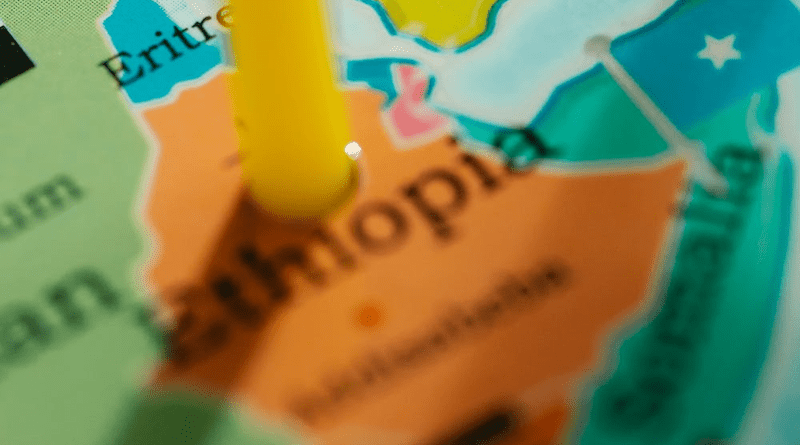The Horn Of Africa States: A Vulnerable Region – OpEd
The peace that was slowly building between Somalia and Ethiopia over the past three decades has totally collapsed in the last two months over the illegal MoU signed through Ethiopia’s careless diplomacy. This would be music to the ears of those who interfere in the region’s affairs. Interfering in Somalia’s internal affairs and harming Somalia’s territorial integrity and sovereignty was not expected of a new leader that was anointed with a peace prize, the most prestigious, indeed – the Nobel Peace prize.
It was a surprise when the Prime Minister of Ethiopia launched a war against his own citizens in Tigray, although he was armed with the Prize, but when he then launched another war with his Amhara state and could not conclude peacefully the war raging in his Own Oromia State, it was clear that the Prime Minister was not a peaceful man. No wonder, he moved on to Somalia, which he probably thought was chewable with ease, forgetting that he has to face the seventy million Somalis across the globe. He probably believed in the fake statistics his own government and others provide of the Somali population. He failed to notice that it is the largest group in the Horn of Africa with the largest space both land and maritime.
The Prime Minister forgot that a war with Somalia would not only put back the region for decades but would disrupt all developments so far achieved even though this was not much any way. How does one then pull back the region from this edge over which it appears to be hanging? It is a critical matter for regional policymakers, business people, researchers and academics to discuss the issue and present views and propositions on how to pull back the region from the brink before falling into oblivion. This would require diplomatic, political, business and social approaches on the matter.
It is necessary that the regional leaders, both rulers and opposition, the academics, the business people and the civic societies do not let the current situation get out of hand and out of control. There must be proposals and effective measures that can be taken by all concerned in each of the countries of the region to maintain certain bottom lines in the region, which has suffered enough over the past four decades. The region already suffers from ethnic conflicts, climate change, droughts and famines, foreign interferences, violent non-state actors such as terror groups and mercenaries, migration and many other vulnerabilities.
But the worst of all has been the illegal MoU signed by Prime Minister Abiye Ahmed with one of the regions of Somalia, which seems to have crossed all red lines, which if not revoked could plunge the region into greater difficulties than has hitherto happened over the past three decades, at least. He has just awakened the sleeping lion, Somali nationalism, which appeared to have been in a long slumber. His stubbornness and insistence on having access to a sea is incredibly wrong under the current international order where his country, unfortunately for him, is landlocked and does not own a coast. It has access to a sea through many countries and this is a matter of business as to who serves better and who is less costly. Ethiopia has access to Sudan’s coast, Eritrea’s coast, Djibouti’s coast, which already handles ninety fiver percent of its exports and imports, Somalia’s coast and Kenya’s coast. His claim in front of his parliament that Ethiopia’s economy is hampered by lack of access to a sea is a lame excuse and a fabricated narrative. Ethiopia had never had it so good economically since the independence of Eritrea in 1993, during which time its economy grew at above 5% annually. Before then, when it had direct access to a sea through Eritrea before independence, its economy only grew at maximum 2% annually.
What Prime Minister Abiy has done is a door not to be touched, at least, in Africa and in many other parts of the world. Does he want to make history to have been the first to break the international UN territorial and sovereignty rules? He cannot be copying the Russians for Russia claims to be protecting Russians. In the case of Somalia, that reasoning is not possible for Somalia is a homogenous state and all its citizens are ninety nine percent Somalis.
The Horn of Africa States under the current scenario appears to be heading to a chaotic regional atmosphere where nonregional parties may get involved. Somalia has already signed a defense pact with Turkey. Other pacts may follow, and this is how situations can easily get out of control. The region does not need such escalation and such cheap maneuverings on the part of Ethiopia. A war between Somalia and Ethiopia would mutually destroy both countries, which are vulnerable anyway. If the Prime Minister of Ethiopia believes he would gain a foothold on Somali waters, he is mistaken. No one needs to explain that to him. He should figure it out himself.
The regional leaders need to have some common sense and must act responsibly. They are, indeed, responsible for the large needy population of the region, who do not need wars and conflicts. They need to be sheltered, educated, have health services and of course food and clothing for themselves and their children. We know many people of Ethiopia, Somalia, Djibouti and Eritrea all abhor the turn of events in the region over the past two months. They must rise against violence and reject those pseudo-leaders who can only offer bloodletting.

